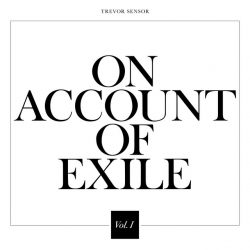A monumental folk-symphonic celebration of our triumph over darkness and misery. Probably.
 There are some musicians who seem to reveal so much of their inner torment at times that you wonder how they can perform these songs. How can they explore emotions so visceral, raw and naked, night after night without finally breaking themselves. You can hear it in the voice of Billie Holiday singing ‘Strange Fruit’. And when Austin Lucas sings: “Ain’t no golden Cadillacs for boys like me who open up our hearts.” Trevor Sensor’s lyrics sometimes get so close to the pain of the marginalised characters who inhabit his songs that there seems to be more of the bitter emotion than the words themselves.
There are some musicians who seem to reveal so much of their inner torment at times that you wonder how they can perform these songs. How can they explore emotions so visceral, raw and naked, night after night without finally breaking themselves. You can hear it in the voice of Billie Holiday singing ‘Strange Fruit’. And when Austin Lucas sings: “Ain’t no golden Cadillacs for boys like me who open up our hearts.” Trevor Sensor’s lyrics sometimes get so close to the pain of the marginalised characters who inhabit his songs that there seems to be more of the bitter emotion than the words themselves.
So ‘On Account of Exile, Vol. 1’ is clearly not an easy listen. But it is infinitely rewarding. Firstly, there is Sensor’s voice which stitches this whole collection together. It is an instrument that seems to transcend simple words and, at times, produces sounds that imply feelings. Take for instance the final sequence of the stunning ‘Chiron, Galactus’, a murder ballad where the speaker’s wife seems to have been murdered by religious extremists, which ends with a repeated refrain of ‘I now have nothing!’ that descends into guttural sounds.
Or on ‘Madison Square Garden’ where the lyrics are paired with wails mid-way between McCartney on ‘I Saw Her Standing There’ and something far more demonic.
When we enter more upbeat territory musically this seems to be paired with even darker lyrical elements as on ‘These Dark Days’ where the uplifting piano intro leads into the lines “Everything is dead, the past left behind/Saw three pretty women weeping in line.” Although there are some glimpses of redemption here: “Don’t know where they’ll put ya/I don’t know where you’ll go/All I can tell ya, darlin’,/Is you’ll never be alone.”
Musically, there is a strong Americana and folk-rock influence; but the songs are lifted into a more orchestral style with vibrant strings and hammered piano driving forward arrangements that swell and ebb with the emotions of the song. There are also elements of cabaret and gothic-folk in the mix.
This is clever music that unpicks the darkness and contradictions of our experiences of life and culture. That sounds as if it is going to be downbeat and depressing, but actually Sensor ends up celebrating our transcendence and spirit: we may live in a world scarred by death and misery, but we carry on despite the inevitability of darkness. And that what makes life worthwhile.


